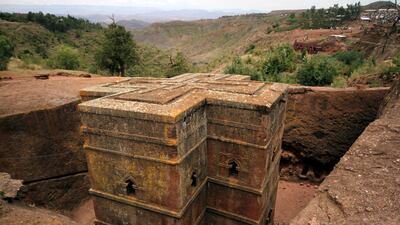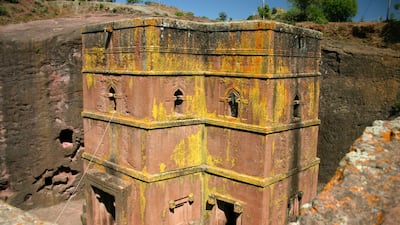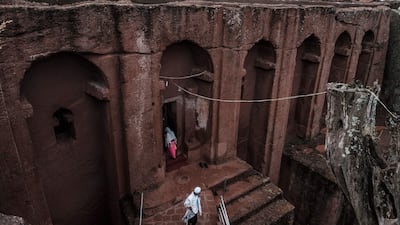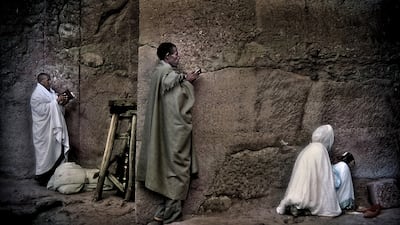Tigrayan rebels in Ethiopia claimed on Monday to have retaken Lalibela from government forces. If that is confirmed, it will be the third time the area has changed hands in the year-long conflict.
The Unesco World Heritage site, about 500 kilometres from Addis Ababa, is famous for Christian churches, carved into solid rock during Christianity's expansion in the region in the 13th century.
The 11 structures set into deep earth are incredibly well preserved.
Not only are the churches hewn from solid rock, but windows, rooms and corridors have also been carved into the structures.
Named after King Gebre Meskel Lalibela, the town was his vision for a “new Jerusalem,” and as part of the project he ordered the creation of the churches, which were declared a World Heritage site in 1978.
Little is known about their construction, although in 1540, a Portuguese missionary, Father Francisco Álvares, said that the churches had taken 24 years to create.
“All the 11 churches represent a unique artistic achievement, in their execution, size and the variety and boldness of their form,” Unesco said about the site and its justification for being added to the Heritage list.
“The whole of Lalibela offers an exceptional testimony to the medieval and post-medieval civilisation of Ethiopia, including the extensive remains of traditional, two storey circular village houses with interior staircases and thatched roofs,” Unesco said.
Experts are now concerned that the site could suffer damage due to the continuing conflict.
“Through our work around the globe, we have seen how the destruction of cultural heritage irrevocably harms both local and global communities. Cultural heritage should never become a pawn or a target in armed conflict,” the World Monuments Fund (WMF), a US non-governmental organisation, has said.
WMF called on “all parties to protect Ethiopia’s extraordinary cultural heritage, including the irreplaceable rock-hewn churches at Lalibela.”








